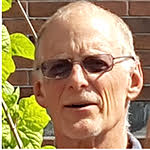Summary of Education and Relevant Experience
Edward Mikel, Ph.D., is faculty emeritus in the School of Education, Antioch University Seattle. Over a long career spanning the roles of high school and middle school social studies teacher, urban school district evaluation specialist and divisional administrator, teacher educator, researcher, and higher education administrator, he has sought the democratic way to a fully inclusive, multicultural, and just society in all its institutions and communities through formal education, especially in the domains of teaching, curriculum, governance, policy, and research.
Currently he is pursuing this commitment in the field of edible education which focuses on a wide spectrum of opportunities to learn about local, sustainable, diverse and democratic alternatives across the entire food system, in and out of formal schools, K-12 and postsecondary, in various parts of the curriculum and in co-curricular, extra-curricular, and community-based activities.
Relevant Experience: Current, Recent Past, and Future Courses Taught or Co-taught at AUS
- EDUC6400-ESE: Education Toward Food Citizenship & Community
- EDUC6420-ESE: Food in Schools & Postsecondary Institutions
- EDUC6450-ESE: Edible Education I: Theory & Practice
- EDUC6470-ESE: Edible Education II: Field Application & Culminating Project

